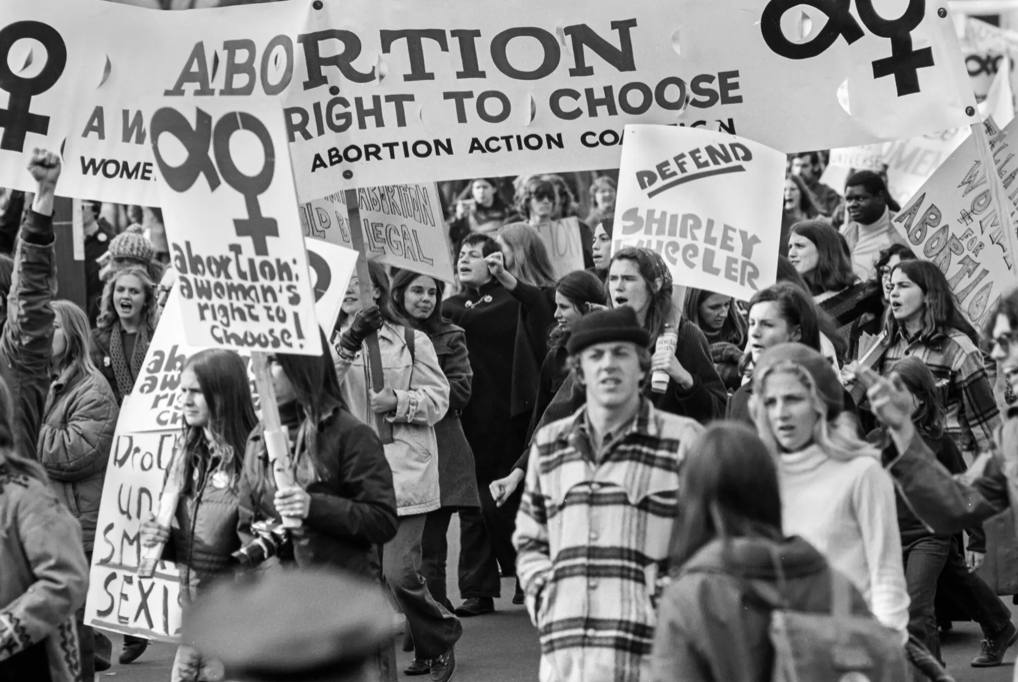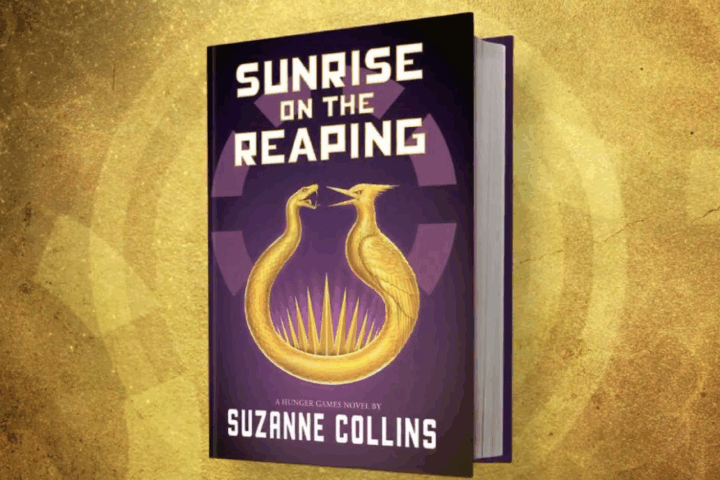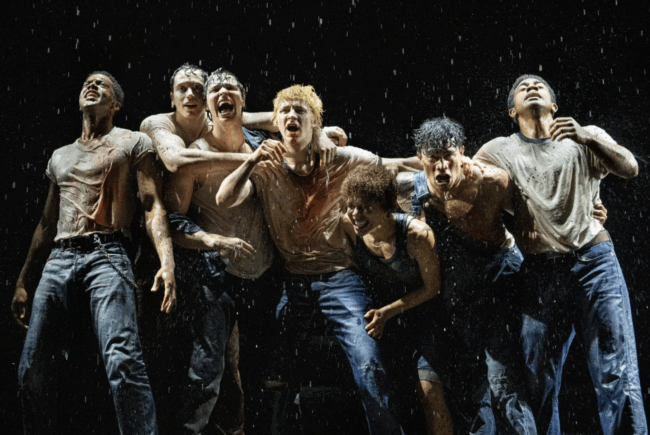Justice Samuel Alito’s draft opinion, which was leaked in May, has left millions of Americans with lingering questions. Alito’s argument that since abortion is not mentioned in the constitution, it cannot be protected by the Supreme Court, has many wondering how abortion can be protected. Over the next few months, especially if the court overturns this fifty-year precedent, Americans will witness an abundance of change.
I spoke with Lynn Livingston who taught Constitutional Law at Fieldston in the 1980s and 1990s to help the Fieldston community understand what Dobbs vs Jackson Women’s Health Organization means for the future of this country (Livingston was also known for her brilliant teaching of Advanced Placement American History, the 10th grade American History survey and Law and Society).
Livingston mentions that one of her Fieldston classes in 1987 coincided with Robert Bork’s Supreme Court confirmation hearings. She says that Bork was firm in his view that the constitution grants no right to privacy, and that “the Roe decision had no merit.” Livingston reiterates Bork’s opinion that justices “could not just ‘find’ rights that were not specifically enumerated in the Constitution.” Bork concluded that the Constitution has only one interpretation, and that is “the original intent of the framers.” Alito’s argument against Roe reignites the debate as to whether the constitution is a living document. During Bork’s hearing, Livingston recalls that Bork’s “critics said that this philosophy would freeze the law and not allow for interpretations for the evolving realities of modern day.” Robert Bork was not confirmed to the Supreme Court.
If the draft opinion holds, the Supreme Court will overturn Roe’s decision that women have a constitutional right of privacy in choosing to have an abortion. Alito believes that Roe was not the best case to argue abortion rights. Liberals such as the late Justice Ruth Bader Ginsburg agreed. Livingston writes that Ginsburg wanted abortion rights to rest not in the right of privacy, but in the Fourteenth Amendment’s equal protection clause. Ginsburg believed that the 1970 case of a female Air Force major who was forced to have an abortion because of Air Force regulations, would have been the better case; however, Livingston reminds us that “the Air Force changed its regulation and therefore the case was moot.” A case that would have had the government decide that it should not force women to have abortions to stay employed, would be easier to agree on than a case that argues for an abortion.
If Roe is overturned, Livingston believes that it is “highly likely that challenges to abortion restrictions will be made in state courts.” There are states that have equal protection of the laws guaranteed, but they “may well serve as vehicles to overturn individual state restrictions.” She suspects that appeals to federal courts will be more difficult, “at least as long as the current makeup of the Court is unchanged.”
In May, Congress failed to codify Roe into federal law. If it had passed, however, Livingston says that “it may have been struck down by the Court.” She says that “Congress can overrule a Court interpretation of federal statute,” but “the Court has held that it is the sole arbiter of what the Constitution means.” Livingston finds it “ironic” that nowhere in the Constitution is it written that the Court has “this power of ‘judicial review.’
The question remains, how are lawyers going to fight abortion restriction? “Personally,” Livingston writes, “I would like lawyers to challenge the new restrictions on ‘bodily autonomy’ grounds,” even though bodily autonomy is not a fundamental right in the constitution. Even so, the Supreme Court has upheld cases based on bodily autonomy in the past. Livingston brings up the right to refuse medical treatment, doctors cannot force you to donate blood, etc. “Even corpses have more rights of bodily autonomy than live women in many states if Roe is overturned!”
The Fourteenth Amendment protects not only abortion rights, but the right to same-sex-marriage, interracial marriage, and more. If abortion rights can be rescinded, so can these other guarantees. “You are right to be worried that other rights based on the right of privacy may be threatened,” Livingston writes. Alito assures in his draft that same-sex-marriage and interracial marriage will remain unaffected, because they do not threaten another life. However, Alito contradicts himself, Livingston says that “[Alito] reasons that no right can be deemed fundamental unless it is enumerated in the Constitution or is so ‘deeply embedded in the history and traditions’ of the country or so essential to our concept of ‘ordered liberty.’”
Millions of eyes are on Planned Parenthood, the non-profit reproductive healthcare organization, waiting to see what the organization will do. If the court overrules Roe and states ban and criminalize abortion, there is not much that Planned Parenthood can do in terms of providing abortions; however, Livingston write that she anticipates that “Planned Parenthood is likely to be in the forefront of educating women about their options although under some state laws, they have to be careful to avoid offering particularized advice to a woman.” Livingston highlights that she does not “think we should envisage a return to the coat-hanger, back alley abortion terrors of pre-Roe abortions.” Medicine has advanced exponentially in the fifty years since Roe. Most abortions are no longer surgical and solely necessitate a pill.
States are already discussing banning at home pill abortions, but Livingston expects that this will be hard to enforce. States may try and penalize women who cross state lines to receive abortions, “but the Court has recognized a fundamental (yet unenumerated) right of travel and even the current Court would be hard pressed to support those laws.” She also reiterates that Planned Parenthood does much more than provide abortions. Planned Parenthood provides essential healthcare such as breast cancer screenings, STD testing, birth control prescriptions, etc. The organization’s services are especially important “to poor women. Many red-state legislatures have been cutting funds to Planned Parenthood even if the funds are meant for non-abortion services.”
Livingston worries about the consequences people who suffer miscarriages and ectopic pregnancies will face if the draft is upheld. She references a tragic case in Ireland that led to the country overruling their abortion ban. A woman had a miscarriage and was denied a dilation and curettage procedure; thus, she became septic and died. Livingston also wonders about IVF procedures when fertilized embryos are discarded when abnormalities are discovered, “Would the laws hold the lab or the prospective parents guilty of murder,” she asks.
I asked Livingston if she believed that the decision of the Jackson Women’s Health Organization to take their lawsuit against the Mississippi abortion law all the way up to the Supreme Court was a mistake. She writes that “Once the Court agreed to hear Dobbs last May, the handwriting was on the wall, especially after Amy Coney Barrett was confirmed.” She supposes that the country had hoped that Chief Justice Roberts “might try to moderate his conservative allies out of fear that overturning a nearly 50 year precedent would damage the credibility of the Court in the eyes of the public,” but he is no longer a swing vote with the court having five anti-abortion conservatives.
Livingston calls the draft “shocking in its total dismissal of the usual tests that justices have used to justify overturning ‘settled law.’” Supreme Court decisions can and have been overturned, but “in most of the history of reversals, the Court has not taken away a fundamental right from the people; indeed, they have reversed prior decisions that restricted rights—no one can be forced to pledge allegiance to the flag, no black child can be kept from receiving an education in an integrated school, etc. because the Court realized that prior decisions were incorrect denials of religious liberty or equal protection of the laws.”
Jackson “might well have anticipated” Alito’s draft, but Livingston says that they “felt it was important to advocate for the continuation of a fundamental right of liberty for women in making such a personal decision.” She calls out false statements that Alito wrote in his draft. He wrote that abortion was criminally punished from the inheritance of English common law until 1973, “This is absolutely false. There was a common law belief that abortion was accepted until the woman felt movement (around 15 or 16 weeks). Even the Catholic Church until 1869 felt there was no problem with abortion until “quickening”–at which point the fetus was “ensouled.” The states at the ratification of the Constitution “did not penalize abetting, procuring or performing abortion before quickening. The earliest abortion-related laws dealt with protecting women’s health from dangerous poisons.”
With state legislatures calling for fetuses be gifted personhood from the moment of fertilization, Livingston says that “There seems to be a lot of yearning from some on the far right to return the US to the 1950s when women had very few rights to have credit in their own names, to be free from ‘marital rape.’” If a fetus is given personhood, the use of contraceptives could be categorized as murder weapons.
President Biden has repeatedly called Congress to codify Roe and protect abortion rights, but Livingston does not “see that Biden will even contemplate using an executive order to protect Roe.” She says his devotion to Catholicism has made him “uncomfortable in voicing his opinion on abortion,” which leads her to believe that he “pivoted to warn that other rights of interracial and same-sex marriage based on a right to privacy were endangered by Alito’s opinion,” to avoid having to defend Roe itself.
Livingston does not believe that a liberal Justice’s clerk leaked the draft, but instead someone who “wanted to stiffen the spines of the 5 conservative justices.”
As the issue of Roe continues to unfold, I will continue to have conversations with people such as Lynn Livingston to further understand the severity of the draft opinion, and what options Americans have left.






